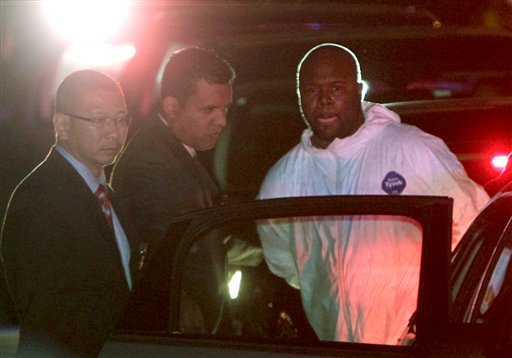Conviction on lesser murder charge in NYPD death

AP111213148658.jpg
A man accused of firing the single shot that killed a New York City police officer during a robbery gone wrong was acquitted Monday of intentionally murdering the officer but found guilty of lesser charges.
Jurors deliberated for about 10 hours over three days before finding Lamont Pride guilty of second-degree murder, burglary and aggravated manslaughter in the death of Officer Peter Figoski.
He faces 25 years to life in prison when he is sentenced Feb. 28. Had he been convicted of the top charge of first-degree murder, he would have faced life without parole.